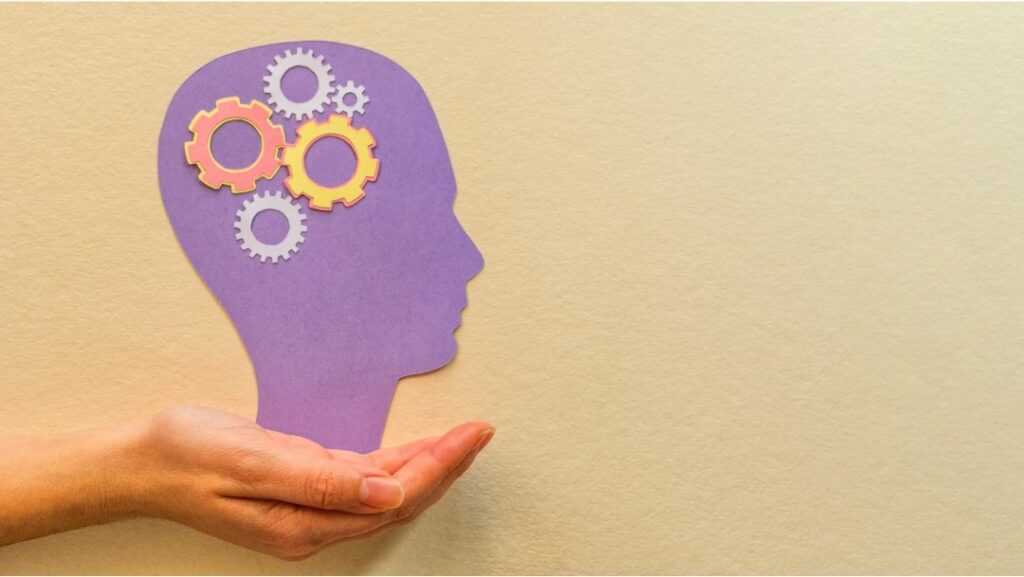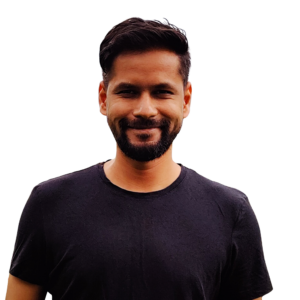NLP Meta programs - Your Invisible Mental Software
What are NLP Meta Programs? Think of the human mind as a computer that runs software in the back of our minds which are the NLP Meta Programs. These NLP Meta Programs help us process the information we receive from the outside world and filter it in a way that makes sense for us. They are similar to having secret codes for our thought processes and understanding them can help us to unlock an in-depth understanding of the human mind.
Have you ever noticed how you and another person experience the very same situation but have 2 completely different experiences of it? How is it that sometimes you wish for structure and procedure but the other wishes for multiple options and spontaneity? These are just a few of the filters that this invisible software A.K.A Meta Programs uses to create our experiences. It helps to shape our perceptions, choices and interactions with ourselves and the world. Let’s dive further into these specific Meta Programs and learn to understand your mind at a deeper level!
1. Mystery Of Motivation: Toward Vs. Away From
Remember that moment when you and your friends are wondering what food to order? You ask them “Hey, what shall we order?” and they usually reply with a bunch of food that they do NOT want. Which eventually leads you to ask them “What do you want?”. This is an example of you shifting them from an Away pattern to a Towards pattern.
This is a great Meta Program to use for motivation. Some of us are constantly motivated by moving toward our goals, seeking pleasure, and embracing positive experiences. On the other hand, some find their inspiration in avoiding problems, moving ‘Away-From’ discomfort, and seeking safety. Uncovering which one dominates your decision-making can shed light on your motivations and why you choose to do what you do.
2. Sameness & Newness: Match Vs. Mismatch
When you are working on a project, sometimes you may stick with focusing on similar strategies that have worked for you previously. At other times, you may try to find different ways to work on the project. This is known as match and mismatch. Matching refers to when you focus on similarities and connections, while ‘Mismatching’ keenly notices differences and distinctions. Understanding this aspect of your metaprogram can help you become a better communicator, adapting your approach to either match or mismatch with the others.
3. Big Picture & Small Details: Big Chunk Vs. Small Chunk
When it comes to working towards your goals, you may tend to think of the big picture aspects such as the vision behind it, and the beliefs and values you want your business, goal and project to have. After establishing this it can also be useful to then move towards the smaller details such as the strategies, skills, behaviours and actions you will need to take to bring your vision to life. Focusing on the larger aspects such as vision is a Big Chunk way of thinking. Working on the specific and smaller details is Small Chunk. Both of these metaprograms are very useful when creating a goal and project.
Bonus example: Ever noticed when you ask your loved one – “How was your day?” and they just reply with one word like it was good or great? Then they ask you the same and you proceed to describe your whole day at a much greater length. You were operating from a small chunk and providing more details whereas your loved one chunked their whole day in just one word – Good!
4. Frame of Reference: Internal Vs. External
How do you know when you are doing a good job? Do you rely on your inner feelings, thoughts and reflections or do you rely on feedback from others? Operating from your thoughts and feelings when working on a situation is an internal reference metaprogram. Working with feedback and validation from others is an external reference metaprogram. It can be really valuable to notice which of these people operate from to be able to connect with and influence them.
5. Relationship Equation: Self Vs. Others
Do you primarily focus on your own needs and desires (Self), or are you constantly aware of the needs and perspectives of others (Others)? This metaprogram can reveal your focus in terms of self and others and guide you in building better relationships.
6. Time Travel: Through Time Vs. In Time
The way we all experience time is subjective. Let’s experience how this works. While reading this blog, what is your sense of time like? Does it feel as if time is flying by or as if it is very slow? Have you noticed that at times 10 minutes doing something you do not enjoy seems like 1 whole hour and at times when you spend an hour doing your favourite activity that seems like just 10 minutes?
To understand this experience, you have to understand that the way we experience our past, present and future is through a timeline that can be divided into these two structures of through time and in time. When it comes to Through time, a person is most likely to have a more disassociated experience. Which means they can be aware of the past, present and future at the same time. This can be a very useful pattern to operate from to be organised.
With In time, a person is present and more in the moment as well as associated with the experience.
7. Decision Making : Choice Vs. Procedure
Think of a decision you may have to make soon that is of importance to you. As you do this, notice which of these patterns you operate from. Choice – You like to create alternatives, options and possibilities for yourself. Procedure – You have a specific and set process with steps that is structured and systematic.
Simply put, when you operate from choice, you are more likely to create and explore different options. With the procedure, you are more likely to follow a structured, organised and systematic process that has a clear sequence of tasks.
8. Submodalities: Visual Vs. Auditory Vs. Kinesthetic
This will help you identify the way you are processing information and how you experience the world. For example, when you say – ‘Oh that plan looks good’, this means you are visually processing this plan in the sense that you can see it and visualise it.
When you say – ‘This plan sounds good’, this is an auditory way of processing. Finally, when you say – ‘This plan feels good’, this is kinesthetic.
Understanding these modalities in yourself and others can be useful to match their preferences or mismatch to influence or connect.
10. Primary Interest: People Vs. Place Vs. Things
Revisit your favourite vacation that you ever went on. What about this experience made it so amazing? Was it the place, the people you went with and met, or was it the activities or things you did there?
If you operate from the people meta-program, you are more likely to focus on relationships, interactions and other social dynamics. With the filter of place, your attention would shift towards the environment and the spatial aspects of the setting. When it comes to things/activities this will lead you to focus on the objects, systems, tasks and other specific details of the experience.
Understanding this can help you tailor the conversation with someone else according to these 3 filters!
11. Action: Reflective Vs. Active
When you have to take action, do you take action right away or do you prefer to think about it and then take action? If you take initiative and quickly take action then you are operating from an active meta program. On the other hand, when you operate from being reflective, you would tend to be cautious, thoughtful and patient with the process. You would take time to assess all the options and then take action.
Once you recognize these meta-programs in yourself, you can choose when to be reflective and when to be active in different situations.
12. Speaking Style: Literal Vs. Inferential
If you felt that someone around you was not performing as well as they should, would you: Come to the point and tell them directly, or would you hint, imply and give them clues?
If you are direct and come to the point, your way of speaking would be literal. If you are hinting, implying and giving clues then this is inferential.
13. Work Preference: People Vs. System Vs. Place
Tell me about a work situation in which you were the happiest, a one-time event.
Do you highlight the people, the system or the place of work?
14. Convincer Representation Strategy: See Vs. Hear Vs. Do Vs. Read
How do you know when someone else is good at what they do?
Do you see it and then decide? Or do you need to hear or read about it? This will help you identify which filter you are using.
15. Convincer Demonstration Strategy: Automatic Vs. Period of Time Vs. Consistent Vs. Number of Times
How often does someone have to demonstrate competence to you before you’re convinced?
16. Why Mastering NLP Meta-programs Is The Way Forward For Everyone
Understanding NLP meta programs isn’t just about self-discovery, it’s a powerful tool for enhancing your communication, relationships, and professional growth. As we navigate this dynamic world, remember that people are unique, and NLP meta programs offer us a lens to appreciate and connect with that uniqueness.
Just as Neuro Linguistic Programming studies the subjective human experience, we all have our own unique, subjective ways of experiencing the world through meta-programs. It is important to know that these are not to be labeled or experienced as good or bad, but that they are all useful to us in different contexts in our lives.
So, whether you’re curious about your NLP meta programs or intrigued by the minds of those around you, embark on this enlightening journey into the fascinating world of NLP metaprograms. You’ll never see human behaviour the same way again, and the secrets of the mind will become your new adventure.
Remember, our NLP meta programs shape us, but we have the power to shape & shift our metaprograms. Hop on the journey of self-discovery and effective communication which starts with understanding the subtle workings of the human mind.
Now you are aware of these? What’s different now and where do you plan on using meta-programs?


